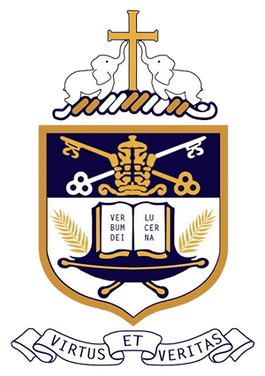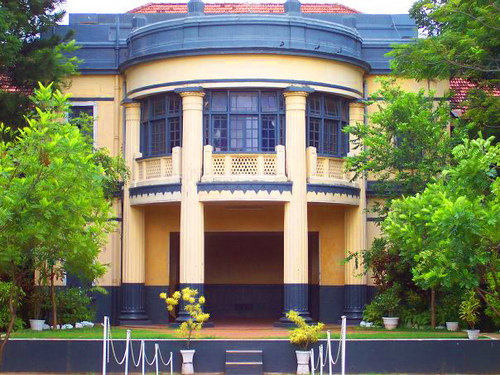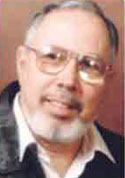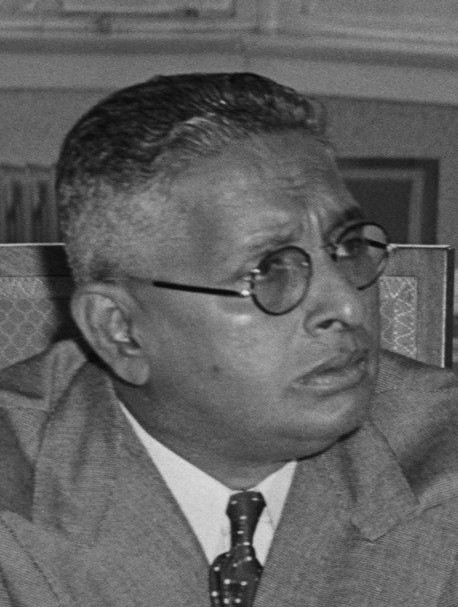Please scroll down for the Sir John Kotelawala article below the Desmond Kelly article…
“PETERITES AROUND THE WORLD” – Appointment of Desmond Kelly, an old Peterite, as Administrator on the Forum
This was a recent Article sent in to the “Captain” of S.L.S. eLanka on 1st Oct., 2020.
Interesting, to say the least.
Hi Neil, (Jayasekera),
I believe that Desmond Kelly is the Editor of eLanka, Main Website for all Lankan Australians, and now the Special Website for all Lankan Britishers as well.
We are happy & proud to announce that we have decided to appoint Desmond, also an old Peterite, as Administrator on our Forum
“Peterites Around The World”, with immediate effect. The reasons for this appointment are varied.
Firstly, we believe that due respect has to be shown to all Peterites & others who are now in the twilight years of life. Secondly, as an advisor to younger generations of Peterites who are the hope of our future, & thirdly, last, but by no means least, is the fact that Desmond Kelly has had quite a full and satisfying life so far, himself. During his early teens, he was recognized as a vocalist at St. Peter’s College, and sang regularly in the Choir, even learning all the Latin Hymns sung each day at Benediction. In addition, he became a leading character with the Music, Art & Drama Society at College.
He left College & home, to join an English Circus Troup, touring the Island at the time, then later, joined Radio Ceylon and started to write his own musical compositions, one of which was the first local English song accepted by the huge Philip’s Corporation of the Netherlands, from where the very famous Blue Diamonds duo, were sent on contract to Ceylon to perform their own show. Desmond was their guest-star. Later, when television was being introduced into Ceylon, he was again, the 1st local Artiste to be featured on T,V, with his hit of that era, called Dreamworld.
Later still, Desmond Kelly joined the Royal Ceylon Navy, then becoming known as the Singing Sailor, leaving the Navy after eight years, to migrate to Australia. He then continued his Showbiz career on a part-time
basis, did recordings both in English & Sinhala, finally retiring from stage & screen, to continue, on an honorary basis, the roles of both an Editor-in-Chief of eLanka & now an Administrator for his ex- Alma-Mater.
We are very proud to include him on our Forum, where his knowledge & skills, especially in music, will be a great advantage to all ex-Peterites, everywhere.
Desmond Kelly is a proud ex-Peterite who has brought honour to our great School, St. Peter’s College. We wish him the best, and blessings in his new position as an Administrator in our globally popular Forum for Peterites, everywhere.
Thank you, truly,
Sunanda Jayasekera
Administrator.
“Peterites around the World”.
eLanka wishes Desmond all the very best and thank him for the continuous support to eLanka too!
===========================
Address by the Right Honourable Sir John Kotelawala, K.B.E., M.P.,
Prime Minister of Ceylon, at the Distribution of Prizes,
S. Thomas’ College, Mt. Lavinia, Saturday, 31 st July,1954(image source: wikipedia )
When I played for Royal against S. Thomas’ many years ago my intention, which was shared by my team-mates, was to give the Thomians a good drubbing, and, if that was not possible, at least to give them a test of endurance. Much as I value the opportunity which I now have of presiding at your Prize Distribution, I shall endeavor to do neither this afternoon. I mist congratulate the Warden on his Report, which illustrates what opportunities school like S. Thomas’ have of continuing to play a leading part in the training of our youth and the moulding of their character.
I am glad that the Warden’s Report did not follow the usual pattern of Principals’ Report on such occasions, when the Government’s policy on education is taken up for microscopic examination and dissection. Our policy on education was born of the county’s needs, and does not claim to be a perfect solution to the Problem that confronts us of providing the best possible education for the rising generation without cost to the parents. Now that we have Free Education we have 6,561 schools and 1,570,000 school going children. Our high standard of Literacy, no doubt, enabled us to obtain our freedom at an earlier date than we otherwise might have, and in an atmosphere of calm. Peace, and quiet, Since then , however, various problems have cropped up like little mushrooms, and one hears it said that education in the mother-tongue is likely to put the clock of political progress 50 years back, and that the next generation will see the ugly monster of communalism rear its head amongst us, The problem of taking education to the masses and giving equal opportunities to the sons of rich and poor parents alike could not have been tackled unless children were given instruction in the only language they knew, which was their mother-tongue.
We have two major linguistic groups in this country and education has, therefore, to be conducted in both these languages. But education in one language does not necessarily mean that people must not learn the other language, or cease to enjoy the obvious benefits which the knowledge of the English language brings with it in science and cultural subjects. One must not under-estimate the role of language in a child’s life during his formative years, or forget that language is a child’s chief means of making social contacts and influencing others. In actual use, language plays an important role in thinking and the solving of problems. Bi-lingualism, and even tri-lingualism, should therefore be encouraged as far as possible, if the communal harmony which we pride ourselves in having today, is to be preserved for the future; because, unless we understand the other man’s language and talk to him in his mother-tongue we would have failed to reach his innermost thoughts and have merely succeeded in creating a barrier between ourselves and our neighbours. I would welcome, therefore, every opportunity a Sinhalese takes of learning Tamil, and vice versa.
As I speak to you now my thoughts go back to the news item of about two weeks ago according to which some 30,000 students were to present themselves for the G. C. E. Examination. That little announcement gave me more food for thought than many of the other matters that took the headlines that day. 30,000 students sitting for the G. C. E. Examination at one and the same time means that there is a much larger number of senior students in our schools who have more or less ended their student days and look forward to some sort of employment. There are, I understand, two G. C. E. Examination a year. On this basis, and with a population that is growing as fast as ours is, one cannot over-estimate the importance of finding jobs for those for whom educational facilities are being provided by the State. It is as important as providing an adequate food supply for our people. Ceylon is an agricultural country, and unless we are prepared to open up all the land we have as quickly as we can, we would fail in providing jobs for the young men and women who are being turned out of our schools every year, and in finding food to feed the thousands of new mouths that are being added to our population every day.
What are schools like S. Thomas’ proposing to do to help the Government and the country to face up to the obvious difficulties with which we are confronted? It would be a condemnation of your school and, in fact, of any school, if the students who pass out every year lack a spirit of adventure and find they are unable to do the work which the county expects them to do, and sit down instead at a time of shrinking employment in the expectation of being able to select their life’s calling according to their tastes. There is plenty of work to be done in opening up farms and land, and taking up employment in shops and mercantile establishments, which in the past, employed foreigners, because sons of the soil thought, or were taught to think, that these jobs were inferior. The Government will shortly start sending out of this country all non-nationals who are in various types of employment for which there is adequate manpower locally. There will be in the next few months a golden opportunity which all young people should seize avidly,- of getting a foot hold into the glorious arena of commerce and business.
At the commencement of my address I referred to the part that school like S. Thomas’ could play in the moulding of our national character. In the recent past, there has been a marked deterioration in public morale due largely to the fact that as a people we are only too prone to give ear to rumours. Rumour thrives on rumour, and little bits of gossip keep on snowballing until they sully the personal reputations of men and women and cause a general lowering of public morale. While rumour-mongering was at its height in this county, I happened to inquire from an Englishman how it was that the English acquired and maintained their national characteristic of exclusiveness, of each one minding his own business and leaving the other person alone. My friend told me that the English had acquired and develop this characteristic as a result of their instinct for self-preservation. Otherwise, he remarked, if every man was unnecessarily friendly with his neighbor and inquisitive about what he was doing, he would find his neighbor coming into his house and removing his lawn-mower one day, and something else the next, and this unnecessary familiarity would breed contempt without any of the advantages of good neighbourliness. We cannot, as a people, get respect if we do not show respect. If every man tries to tar everybody else, we tar ourselves as a race.
In this war on personal reputations that is going on, I notice a most reprehensible tendency for persons in all walks of life to say things merely to get headlines for themselves in the newspapers. Living in an age of headlines creates tremendous problem. The variety of types that hit the headlines is truly amazing. Existing papers cannot cope with the rush of headline hunters, and so new ones keep on appearing to cope with the demand for personal frailty and public scandal. The most alarming tendency of all is that some members of religious orders are now attempting to hit the headlines because of their failure to realise that their duty is to preach their religion. If this tendency is unchecked, and all religious denominations get affected, there will be religious disharmony, and eventually breaches of the peace, as happened recently at Mawanella. I therefore appeal to our schools, to teachers and students alike, to heads of our denominational institutions. – who are now no longer worried by the bitter controversy that went on with regard to the place of denominational schools in our educational system, – to throw in their weight towards preserving our national character which is under a grave threat of being warped and destroyed, if the present tendencies to which I have referred are permitted to go unchecked.
There is one more subject I would like to touch on before I conclude. Public education today should be, in every sense, an education for freedom and democracy. Students in our schools have to be prepared for participation in a democratic system with a genuine feeling of love for their land, and a realization that it belongs to the Ceylonese as a race, and not to any individual or community. Democracy is not safe unless every growing child is brought up in a religious atmosphere, whatever his religion may be, and also taught to respect the religions of others. Sport and disciplinary training derived from such activities as Scouting and joining the Cadet Corps are probably the finest ground for preparing them for this task. The teachers in our schools have a sacred task to perform and fulfil, particularly as the country cannot afford to let its young minds get poisoned.
Our school are our strongest bulwark for our future. Schools like yours with such a glorious history and such a wonderful tradition set by Warden de Saram and his illustrious predecessors must continue to mould character, instil discipline, and impart knowledge of a kind that will ensure that the products that continue to into eminence in the public life of our country in the past.












No Comments